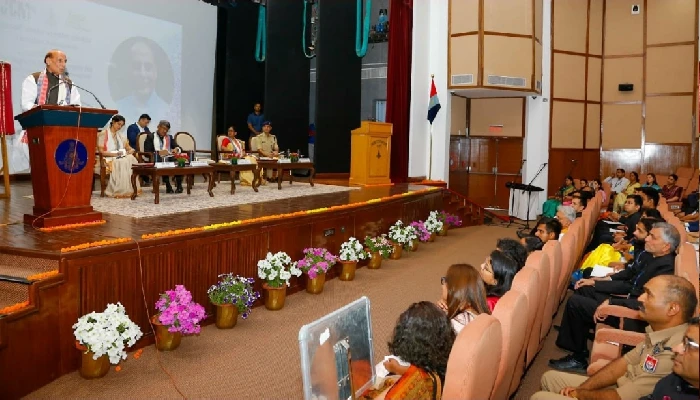The use of e-office was one of the most significant innovations in the Darbar move practice, said Union Minister of State Jitendra Singh
Jammu & Kashmir ranks first among all Indian Union territories in terms of e-governance service delivery, saving roughly Rs. 200 crores yearly on the transportation of physical files during the annual Durbar move between Jammu and Srinagar.
Releasing the National e-Governance Service Delivery Assessment report, Monday, Union Minister of State for Personnel, Public Grievances & Pensions Jitendra Singh praised the Union Territory for attaining this position with approximately 90% total compliance.
The report has been prepared at the initiative of the Department of Administrative Reforms in the Union Ministry of Personnel.
According to the Ministry of Personnel, Public Grievances & Pensions, Singh briefed the national workshop on e-office and the launch of NeSDA 2021, saying that Jammu & Kashmir was analyzed for the very first time in NeSDA 2021 in the Union Territories (UTs) category and achieved the best rank among all UTs for six sectors.
He stated that after the Jammu and Kashmir Reorganisation Act, 2019 came into effect on October 31, 2019, it became the first UT in the country to get a "good governance index," as well as the first to launch "the district good governance index" for 20 districts of the Union Territory of Jammu and Kashmir in January this year.
The use of e-Office, according to the Minister, enabled the simultaneous effective working of both the Jammu and Srinagar Secretariats and was one of the most significant innovations in the Darbar move practice.
He added that 28 Ministries and Departments have already adopted e-Office version 7.0 along with digitization of the central registration units enabled creation of paperless secretariats where receipts move online, files move online and correspondence moves online. By February, 2023, all Ministries will have e-Office version 7.0, he added.
"The limited file movement with 4 levels of submission and adoption of the desk officer system has ensured that non-performing officials can no longer hide files," the Minister pointed out.
According to the minister, the uninterrupted functioning of the Central Secretariat in the pandemic and lockdown was possible because of e-Office. Deputy Secretaries, Joint Secretaries, Additional Secretaries and Secretaries had access to Virtual Private Network and could take policy decisions on e-files during this period.
Singh said India’s e-Governance policies have shown improvements and citizen satisfaction levels have risen and, in many ways, Technology has succeeded in Bringing Government and Citizens closer.
The study is one of its kind, which assesses the efficacy of states, Union Territories, and central ministries in providing online services to residents. The research also makes recommendations for how governments might improve their e-government service delivery platforms.
 Contact Us
Contact Us  Subscribe Us
Subscribe Us









 Contact Us
Contact Us
 Subscribe
Subscribe
 News Letter
News Letter

